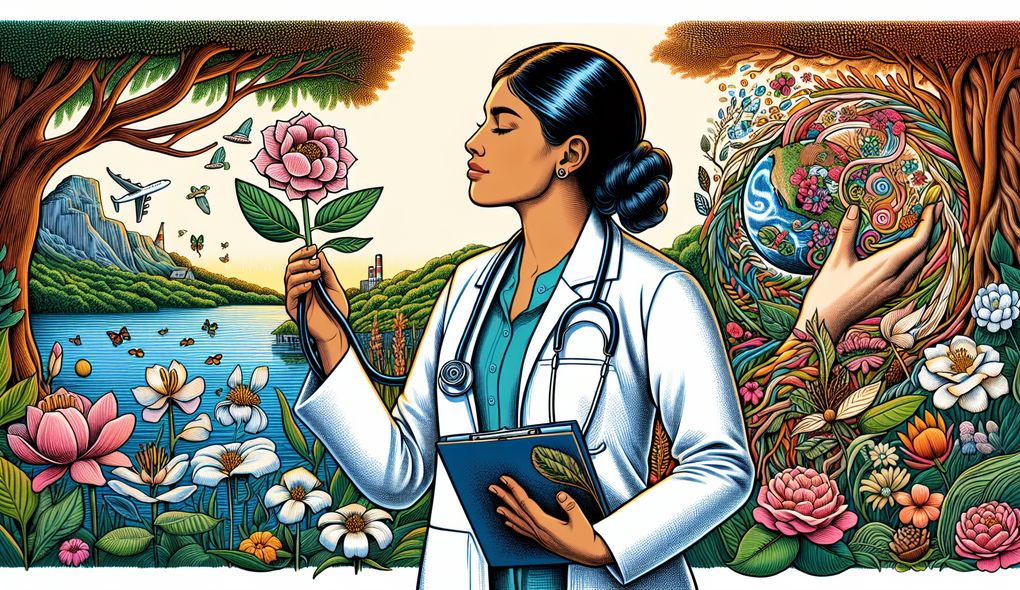Describe a time when you had to make a difficult decision regarding an environmental health intervention. How did you approach the decision-making process?
SENIOR LEVEL

Sample answer to the question:
One difficult decision I had to make regarding an environmental health intervention was when I was working on a project to address air pollution in a local community. We had identified a nearby industrial plant as a major source of pollution, but shutting it down would have resulted in job losses for the workers. To approach the decision-making process, I gathered data on the health impacts of the pollution and conducted a cost-benefit analysis. I also consulted with community members, workers, and other stakeholders to understand their perspectives. Ultimately, I recommended implementing stricter pollution control measures for the plant while also working with local organizations to provide job retraining and support for the workers.
Here is a more solid answer:
One difficult decision I had to make regarding an environmental health intervention was during a project focused on reducing lead exposure in a low-income community. The challenge was deciding on the most effective intervention strategy within the limited resources available. To approach the decision-making process, I first conducted a thorough assessment of the community's lead exposure sources and the health impacts. I then utilized my advanced clinical skills to analyze the data and identify the key areas where intervention was needed the most. I collaborated with a team of experts, including toxicologists and public health professionals, to explore evidence-based strategies. We considered factors such as the feasibility, cost-effectiveness, and potential long-term health benefits of each intervention option. After careful consideration, we decided to implement a comprehensive lead abatement program targeting high-risk households and providing education on lead-safe practices. This approach addressed both acute and chronic health risks while respecting the community's limited resources. Throughout the decision-making process, I regularly communicated with community members and stakeholders to ensure their input was valued and addressed any concerns or questions they had.
Why is this a more solid answer?
The solid answer provides specific details about the candidate's experience with a difficult decision regarding an environmental health intervention. It demonstrates a comprehensive approach to the decision-making process by utilizing advanced clinical skills, collaborating with experts, and considering multiple factors. The evaluation areas are addressed more thoroughly in this answer. However, the answer could still benefit from additional examples to further support the candidate's skills and knowledge.
An example of a exceptional answer:
One challenging decision I faced regarding an environmental health intervention was when I had to determine the best approach to address water contamination in a rural community. The contamination was causing high rates of gastrointestinal illnesses, especially among children. To approach the decision-making process, I first conducted a detailed assessment of the water sources, testing for various contaminants and analyzing the health data. I utilized my advanced clinical skills to identify the specific contaminants and their potential health effects. I then collaborated with a team of environmental scientists, engineers, and community members to explore intervention options. We reviewed the latest research and evidence-based practices, considering factors such as effectiveness, sustainability, and community acceptance. After careful consideration, we recommended implementing a multi-faceted approach. This included installing water filtration systems, providing education on safe water management practices, and advocating for policy changes to prevent further contamination. Additionally, we organized community meetings and conducted training sessions to empower community members to take an active role in protecting their health. Through regular monitoring and follow-up, we were able to track the reduction in gastrointestinal illnesses and the improvement in water quality. This project not only addressed the immediate health concerns but also created a lasting positive impact on the community's well-being. It showcased my ability to integrate advanced clinical skills, collaborate with interdisciplinary teams, and utilize evidence-based practices to make informed decisions.
Why is this an exceptional answer?
The exceptional answer provides a detailed and comprehensive response to the question, addressing the various evaluation areas mentioned in the job description. The candidate demonstrates their ability to handle challenging decisions by providing a specific example of addressing water contamination in a rural community. The answer showcases the candidate's advanced clinical skills, collaboration with experts, utilization of evidence-based practices, and the long-term impact of their decision. The evaluation areas are thoroughly addressed in this answer. The candidate could further enhance the answer by providing additional examples from their experience.
How to prepare for this question:
- Review your past experiences and identify situations where you had to make difficult decisions related to environmental health interventions.
- Focus on showcasing your advanced clinical skills by describing how you utilized your expertise in analyzing data, identifying health risks, and developing intervention strategies.
- Highlight your leadership and project management capabilities by discussing how you collaborated with interdisciplinary teams, led initiatives, and ensured successful implementation of interventions.
- Emphasize your communication, education, and advocacy skills by explaining how you effectively communicated complex information to diverse audiences, educated communities, and advocated for policies to support environmental health initiatives.
- Demonstrate your knowledge of environmental policies, laws, and regulations by discussing how you integrated them into your decision-making process.
- Discuss your ability to incorporate evidence-based practice into environmental health strategies by providing specific examples of utilizing research and best practices in your decision-making process.
What are interviewers evaluating with this question?
- Advanced clinical skills
- Analytical skills
- Leadership and project management
- Communication, education, and advocacy
- Knowledge of environmental policies
- Incorporating evidence-based practice

